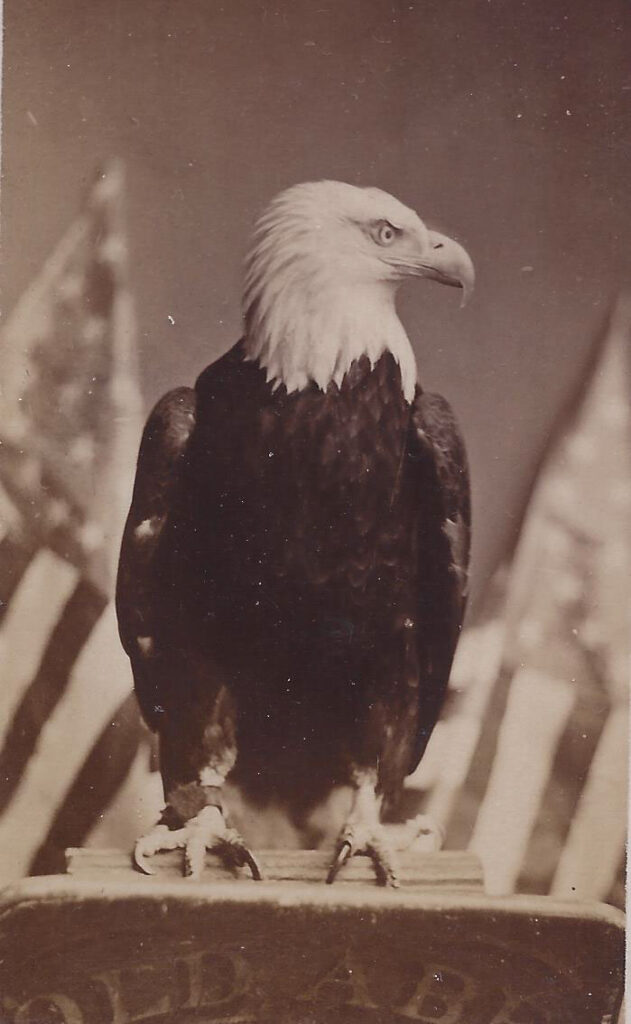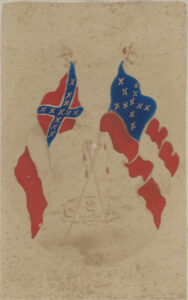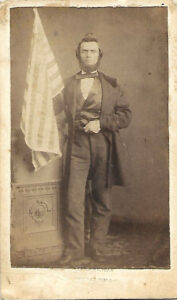Section #6 - Some Shared Values
Some Shared Values

You are there:
While the original British colonists have diverse reasons for emigrating to America, they are remarkably alike in their values and aspirations, prejudices and fears.
The reason for this traces to the fact that, even after 150 years in America, the white population remains intensely homogeneous. As of 1760, just over 7 in 10 still hail from the British Aisles and another 18% are of German descent.
Population Profile Around 1760
| People Whose Country Of Origin Is: | % of White Population | % of Total Population |
| British Aisles | 71% | 44% |
| Germany | 18 | 11 |
| Other Europe | 11 | 7 |
| African Slaves | 38 | |
| Total | 100% | 100% |
In addition, the vast majority are practicing or nominally Protestants. Their heritage lies in the Reformation against the Catholic Church, the Enlightenment and the strictures of the Church of England. But while committed to freedom of religion, their religious beliefs and values remain grounded in the tradition of Martin Luther and John Calvin.
The mottoes they adopt for their colonies reflect some of their shared wishes:
* For personal freedom from all forms of oppression or tyranny. This could come from
outside invasion by a foreign power, or from inside, in an attempt to set up a monarchy.
Both must be resisted, if need be through military force. Virginia, Massachusetts, New
Hampshire, Delaware, New Jersey and Pennsylvania all reference liberty as a core value.
* To lead lives of virtue, wisdom and authenticity, as referenced by Pennsylvania, Georgia
and North Carolina.
* For sustained prosperity in the new land, as expressed by Rhode Island, South Carolina and
New Jersey.
Mottoes For The Original 13 Colonies
| Founded | States | Mottoes |
| 1607 | Virginia | Thus Always To Tyrants |
| 1620 | Massachusetts | By the sword we seek peace, but peace only under liberty. |
| 1623 | New Hampshire | Live free or die |
| 1632 | Maryland | Strong deeds, gentle words |
| 1636 | Connecticut | He who is transplanted still sustains |
| 1636 | Rhode Island | Hope |
| 1636 | Delaware | Liberty and Independence |
| 1653 | North Carolina | To be rather than to seem |
| 1663 | South Carolina | Prepared in mind and resources |
| 1664 | New York | Excelsior (Ever Upward) |
| 1664 | New Jersey | Liberty and Prosperity |
| 1682 | Pennsylvania | Virtue, Liberty and Independence |
| 1732 | Georgia | Wisdom, Justice and Moderation |
In addition to these high-minded civic aspirations, the colonists also share a personal commitment to the “American Dream.” It says that no matter how humble one starts out in life, any (white) man can rise up, using his intellect and labor, to achieve prosperity for himself and his family.
This chance for upward mobility depends, they believe, on creating a society with shared values and codes of conduct. These include:
* Personal accountability. This characteristic, later referred to by the philosopher Ralph Waldo Emerson as “rugged individualism,” challenges each man to rely on his own initiative and perseverance to succeed in the new world.
* Work ethic. As Calvinist Protestants, most have been taught that God hands each man a “purpose in life,” and hard work is required to achieve it. In turn, those who do so, are rewarded with material wealth and success – “hints” that one is among “the elect” chosen by God for salvation.
* The Golden Rule. Those leading a good life will embrace the Sermon on the Mount dictate to “do unto others as you would have them do unto you.”
* Pledges. Keeping one’s word is expected, be it in the realm of matrimony or commercial affairs or allegiance to the nation.
* Law and order. Citizens will obey the laws of the land, written by themselves rather than imposed on them by an arbitrary monarch.
* Military duty. Each man will have access to arms, will belong to a local militia, and be ready to serve at times of crisis. But there will be no “standing army” thus avoiding the risk of an internal insurrection.
* Resolving disputes. This will be done through fair voting not violence, with majority rule defining the winners.
* Trial by jury. Anyone arrested for breaking the law will be presumed innocent and have the right to a speedy trial by a jury of their peers.
* Free speech. Protecting each person’s capacity to speak their own mind without censorship is deemed essential to the nation’s well-being.
* Liberty. The motto “Don’t Tread On Me” on New Hampshire’s Revolutionary War battle flag captures the essential American determination to arrive at their own beliefs and steer their own destinies.
If the citizenry can embrace these principles, not only will they prosper, but the results will demonstrate America’s “exceptionalism” around the world.
What follows over the next 250 years is the creation of a new nation that takes its place alongside the greatest global powers of the day. It survives early threats to its security from Europe; expands its borders across the continent; creates the world’s second leading economy; and demonstrates that a government run by the will of the citizens can endure and prosper.
Perhaps the finest outside observer of this new social ethos is a youthful Frenchman named Alexis de Tocqueville, who is credited with best capturing the America ethos at the time.
Tocqueville is the son of aristocratic parents, and gets home tutored before studying law in Paris. In 1831, at age 25, he acquires an unpaid apprenticeship to travel to America to study its prison systems and report back on possible reforms for France. He arrives along with a friend and legal superior in Newport, Rhode Island in May 1831. Over the next nine months the pair will crisscross the nation, recoding observations as they go. The result is a two volume work titled Democracy in America published in 1834 and 1840.
What Tocqueville finds most striking about Americans is their determination to make up their own minds on all matters, free from any conventional wisdom or platitudes foisted upon them.
The Americans have no philosophical school of their own, and they care but little for all the
schools into which Europe is divided, the very names of which are scarcely known to them.
Yet it is easy to perceive that almost all the inhabitants of the United States use their minds
in the same manner.
I discover that in most of the operations of the mind each American appeals only to the
individual effort of his own understanding. To evade the bondage of system and habit…
class opinions…of national prejudices; to accept tradition only as a means of information,
and existing facts only as a lesson to be used in doing otherwise and doing better; to seek
the reason of things for oneself, and in oneself alone; to tend to results without being
bound to means, and to strike through the form to the substance–such are the principal
characteristics of what I shall call the philosophical method of the Americans.
From this uniquely American way of thinking comes a genuine experiment in democracy, which, for the Frenchman, explains the “social conditions” of the new nation. He summarizes this in bold type as:
THE STRIKING CHARACTERISTIC OF THE SOCIAL CONDITION OF THE
ANGLOAMERICANS IS ITS ESSENTIAL DEMOCRACY.
While de Tocqueville sees philosophical similarities across the population, he distinguishes between the societal milieus in the North vs. the South.
His view is that the South has been shaped by the dominance of slavery which has “benumbed” the entire region and left it diminished by “ignorance and pride.”
Slavery… dishonors labor; it introduces idleness into society, and with idleness, ignorance
and pride, luxury and distress. It enervates the powers of the mind and benumbs the activity
of man. The influence of slavery…explains the manners and the social condition of the
Southern states.
By contrast, de Tocqueville is much more sympathetic toward the North, rooted in the Puritanism of the New England states, and dedicated, he feels, to higher ideals.
Theirs was never a mad search for wealth and title, but rather the “triumph of an idea” – to
create a society where they could “worship God in freedom” and translate religious
principles into a political reality for the common good.
But he is also clear in arguing that the society operates to the benefit of the white population, leaving the other two races in dire straits.
Both the Negroes and Indians occupy inferior positions; both suffer from tyranny;
and if their wrongs are not the same, they originate from the same authors.
While both minorities suffer in the relationship, it is the enslaved Africans who are “deprived of almost all the privileges of humanity.”
Oppression has, at one stroke, deprived the descendants of the Africans of almost all the
privileges of humanity. The Negro of the United States has lost even the remembrance of
his country; the language which his forefathers spoke is never heard around him… The Negro
has no family…he enters upon slavery as soon as he is born…Equally devoid of wants and of
enjoyment, and useless to himself, he learns, with his first notions of existence, that he is the
property of another. The response to slavery is every bit as devastating as the condition itself
– for intimidation destroys the innate sense of self-worth and identity and replaces it with an
instinct to imitate the traits of white masters for the sake of survival.
Tocqueville’s empathy here is offset by his unequivocal embrace of the racial prejudices of his time.
If we reason from what passes in the world, we should almost say that the European is to
the other races of mankind what man himself is to the lower animals: he makes them
subservient to his use, and when he cannot subdue he destroys them.
Race prejudice seems stronger in those states that have abolished slavery than in those
where it still exists, and nowhere is it more intolerant than in those states where slavery
was never known.
In turn he is not sanguine about emancipation as the path to reversing the damage done by slavery.
If he becomes free, independence is often felt by him to be a heavier burden than slavery…In
short, he is sunk to such a depth of wretchedness that while servitude brutalizes, liberty
destroys him.
Tocqueville is also considered prescient regarding the social and economic differences between the North and South that could bring down the amazing experiment in democracy. His visit coincides with the “Nullification Crisis” over cotton tariffs which he attributes to “the envy of declining Southern states versus those on the rise in the North.”
Finally the French visitor adds one more note of praise along with one caution:
America is great because she is good, and if America ever
ceases to be good, she will cease to be great.
Tocqueville’s observations stand out for capturing not only the nation’s towering strengths but also its potential failures of the new nation.
Some of these failures are momentary, the religious zealotry of the Puritans which erupts into the witch trials in Connecticut and Massachusetts in the 1600’s.
Some persist, the xenophobia that’s aimed especially at Roman Catholics and then at all immigrants.
And one will prove catastrophic: America’s original sin of chattel slavery.
It begins in August 1619 when the private British ship White Lion drops anchor on the James River near Hampton, Virginia. In exchange for “victuals,” the ship commander, John Jope, hands over “20 and odd” Africans seized earlier in a raid on a Spanish slave ship. They become the property of Sir George Yeardley, the sitting Governor of Virginia, and are held then at Jamestown.
Over the next 175+ years slavery spreads to all thirteen colonies as an integral part of America’s drive for commercial growth. By 1730, Rhode Island emerges as the focal point for slave trading as part of the burgeoning market for rum. Its thirty distillers produce an option to French brandy preferred by slave dealers along the African coast. The result is the “triangular trade” whereby the dealers ship slaves to Cuba and Hispaniola to process sugar cane into molasses which is then sent along to the Rhode Island distilleries.
This system ends in the late 1700’s with the population of potential African captives depleted, and passage of the 1808 ban by the American Congress on international slave trading.
By the 1850’s the core values that unified the nation in 1700 remain, but the conflicts over slavery have divided the North and the South when it comes to realizing the American Dream.
And the result will be a tragic civil war.


